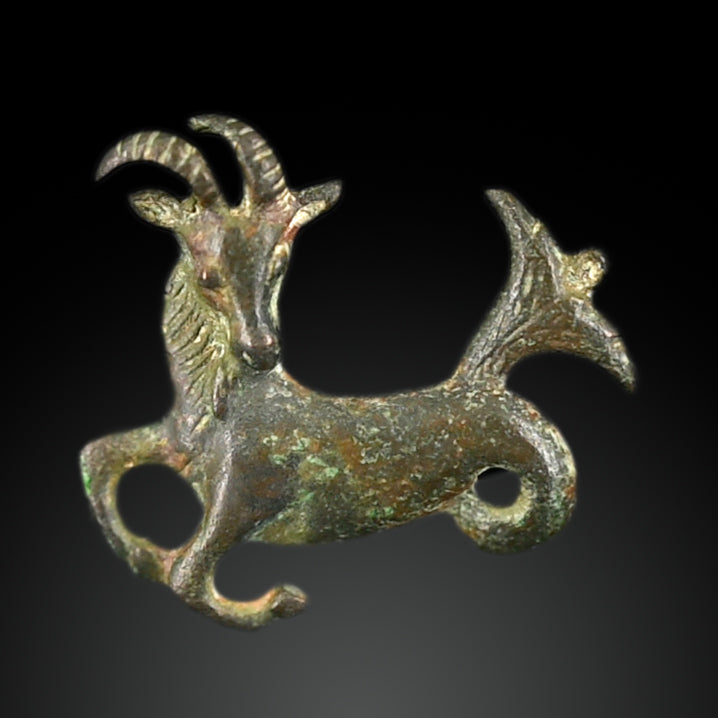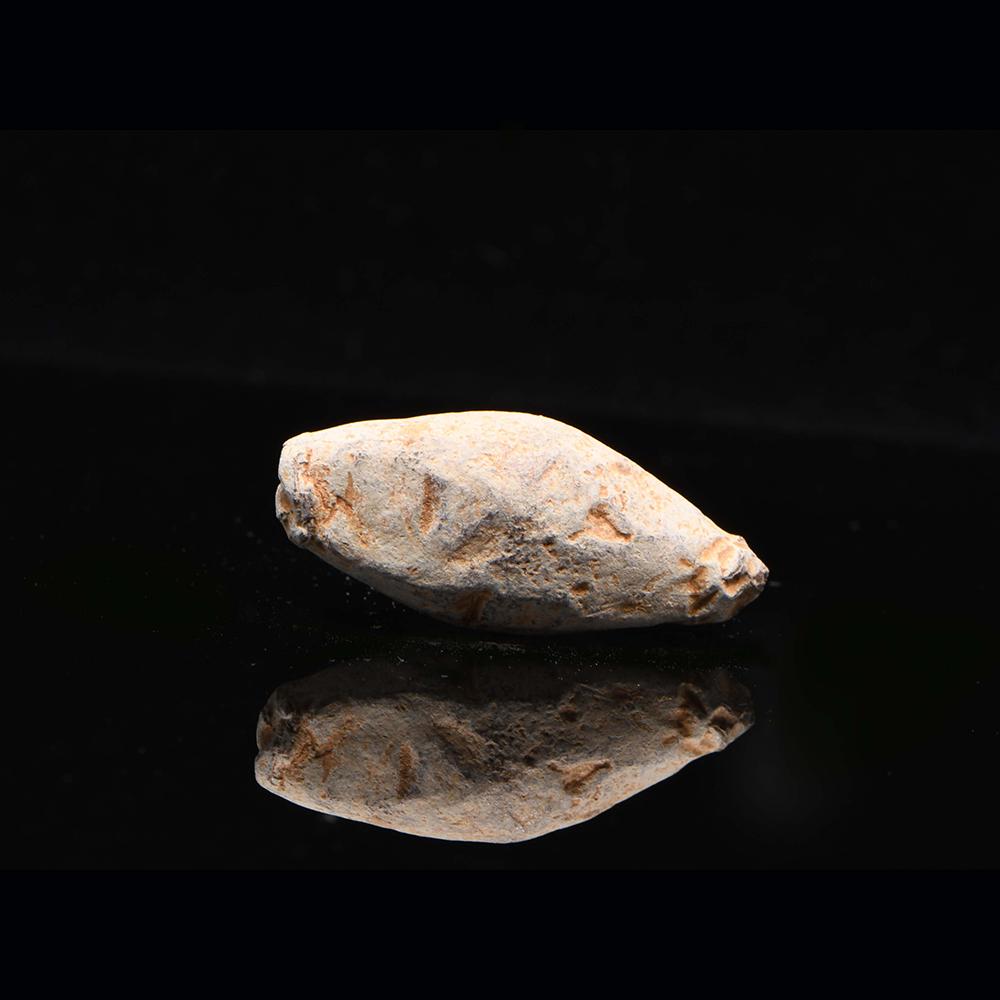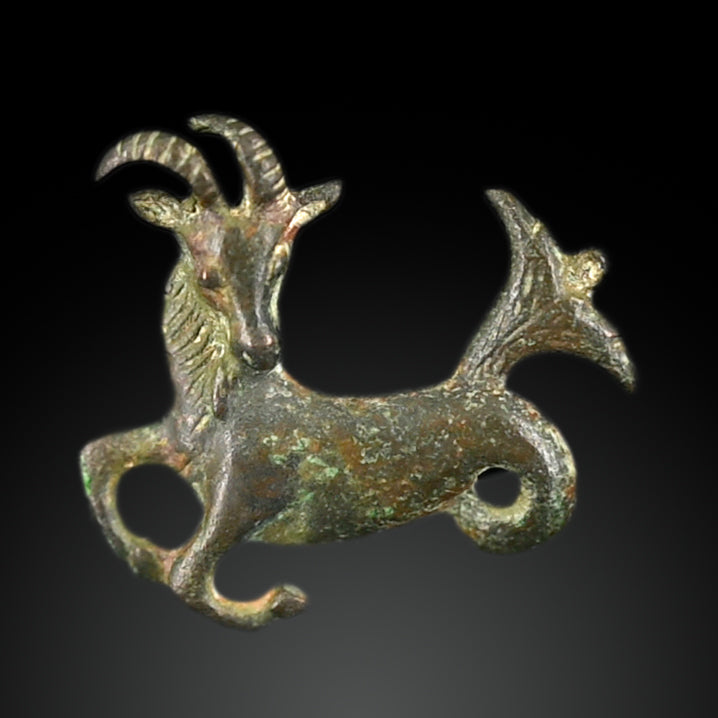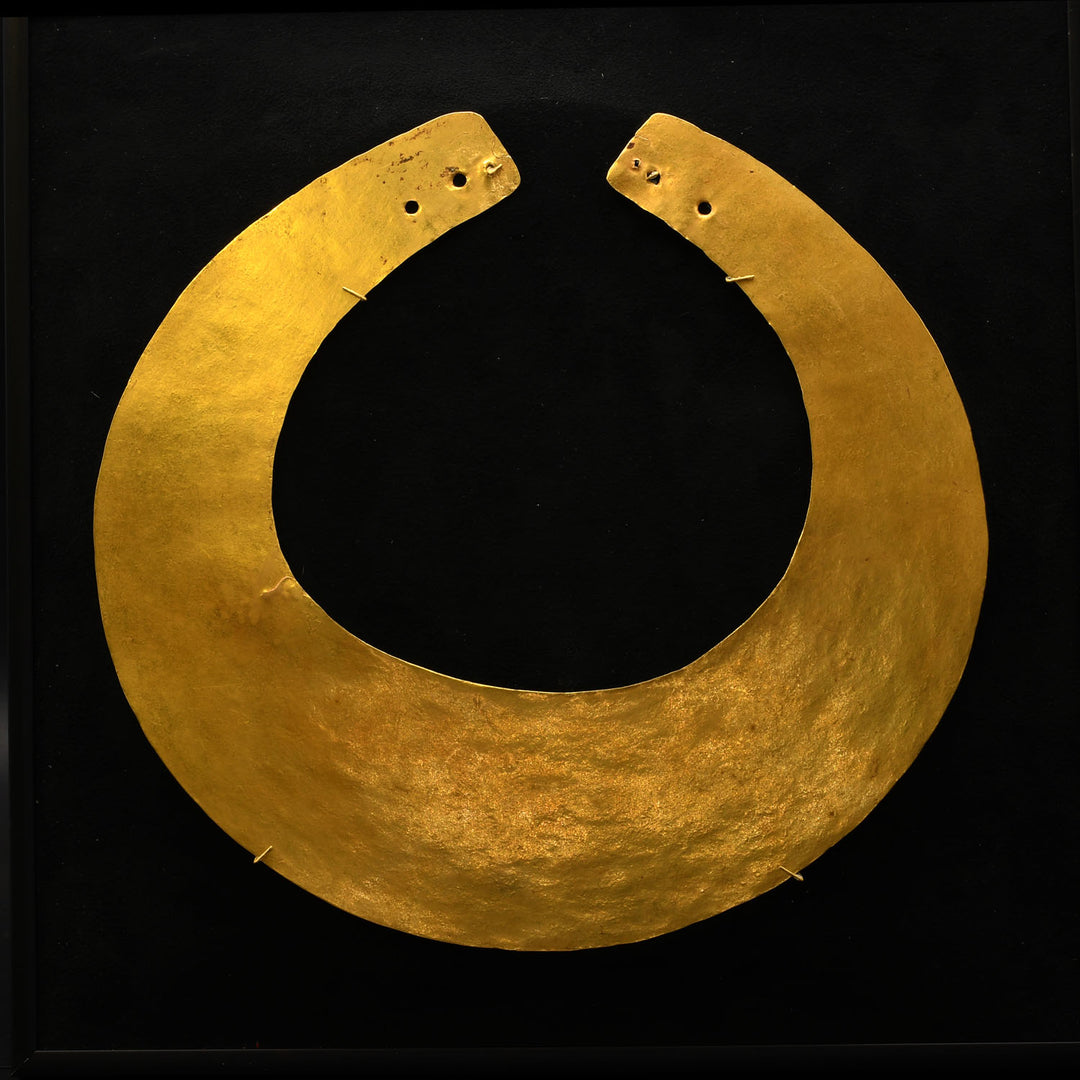A Roman Lead Sling Bullet from the battle of Julius Caesar and Pompey, ca. 46 BCE
RX2004
- This object qualifies for free USA shipping and a flat rate fee of $60 if shipping internationally.
Pickup available, usually ready in 2 hours
1002 Wisconsin Ave NW
Front store
Washington DC 20007
United States
+12023420518
Cast from a two-part mold, this almond-shaped lead sling bullet is from the Battle of Munda in 46 BCE where Julius Caesar defeated Pompey the Great.
Background: According to late Roman writer Vegatius, Roman Republican slingers had an accurate range of up to six hundred feet, and the best sling ammunition was cast from lead. For a given mass, lead, being very dense, offered the minimum size and, therefore, minimum air resistance. Also, lead sling bullets were small and difficult to see in flight. In some cases, the lead would be cast in a simple open mold made by pushing a finger, thumb, or sharpened stick into sand and pouring molten metal into the hole. The flat-top end was carved to a matching point after the lead cooled. More frequently, they were cast in two-part molds.
Sling-bullets were made in a variety of shapes, including an ellipsoidal form closely resembling an acorn; possibly the origin of the Latin word for lead sling-bullet: glandes plumbeae (literally leaden acorns) or simply glandes (meaning acorns, singular glans). The most common shape by far was biconical, such as this example, resembling the form of an almond or an American football. Why the almond shape was favored is unknown. Possibly, there was some aerodynamic advantage, but it seems likely that there was a more prosaic reason, such as the shape being easy to extract from a mold or that it will rest in a sling cradle with little danger of rolling out. Sometimes, symbols or writings were molded on the side. A thunderbolt, a snake, a scorpion, or other symbols indicating how it might strike without warning were popular. Writing might include the name of the military unit or commander, or was sometimes more imaginative, such as, "Take this," "Ouch," "Catch," or even "For Pompey's backside."
Dimensions: Length: 2 inches (5 cm)
Condition: Intact and in very good condition overall.
Provenance: Alex Malloy private collection, acquired in the 1980's.
Sands of Time provides a lifetime, unconditional guarantee of authenticity and provenance. Every object you purchase from us is accompanied by a Certificate of Authenticity, stating culture, provenance, and age.
Furthermore, we conduct due diligence to ensure the item, to the best of our knowledge, has not been illegally obtained from an excavation, architectural monument, public institution, or private property. Wherever possible, reference is made to existing collections or publications.Wherever possible, reference is made to existing collections or publications.
We ship Tuesday to Friday with FedEx and usually same day if your order is received before 2pm. Within the continental USA, packing, shipping and insurance is free. Depending on size and destination, delivery times range from one to five business days.
For overseas shipments we charge a small flat rate which includes packing, preparation of all customs paperwork, insurance and carrier fees in compliance with all USA and International customs requirements. Overseas shipments are sent using either USPS Priority Mail or FedEx but contact us if you have a shipping preference. International customers are responsible for all duties and taxes.









